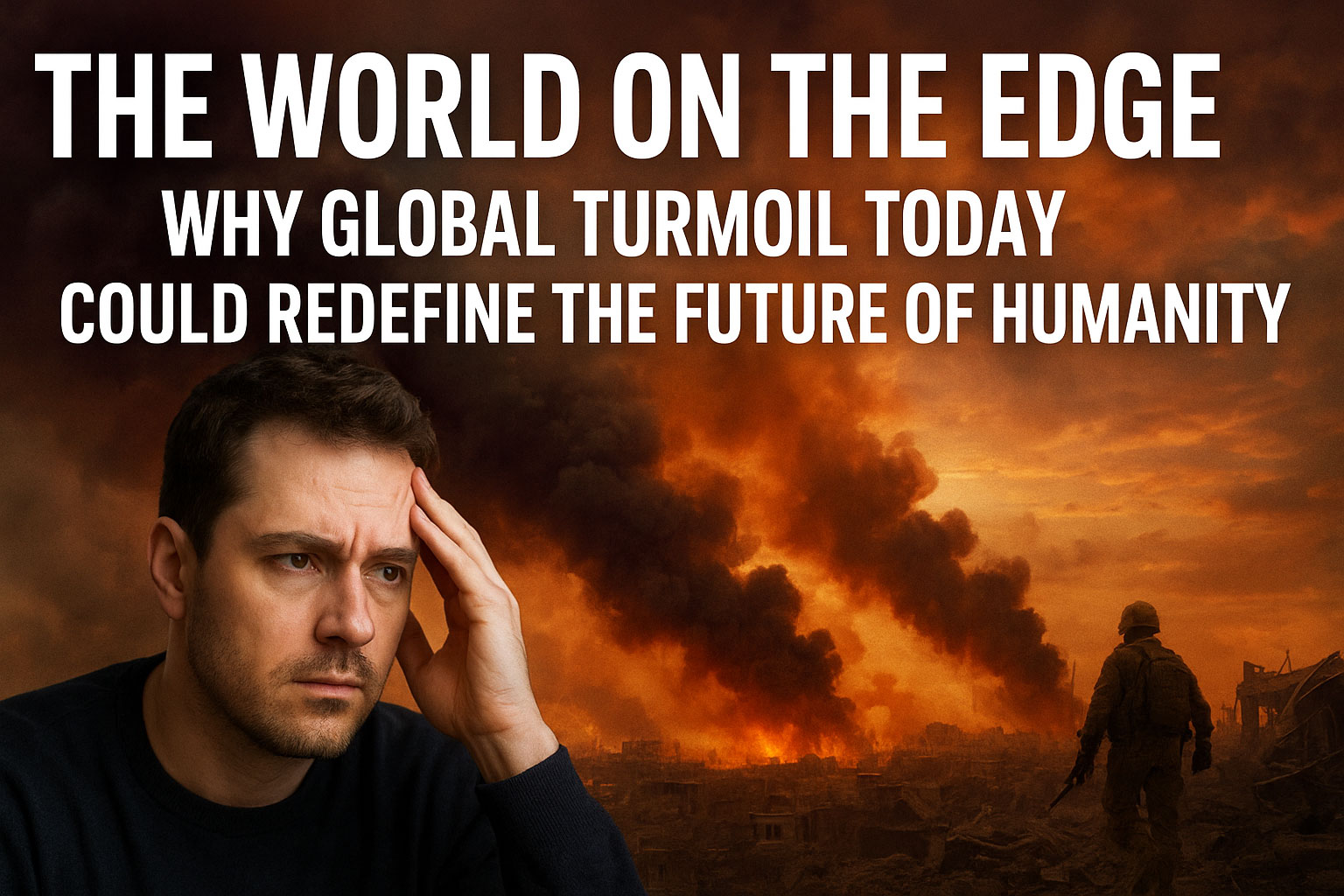The world we live in today is experiencing a defining moment in history — one marked by political upheavals, economic uncertainty, technological disruption, and environmental crises. Every continent is grappling with its own set of challenges, yet all are deeply interconnected. These turbulent times are forcing humanity to question not only where we are headed but also whether we are prepared for the consequences of our choices.
Geopolitical Tensions at Boiling Point
Global politics is currently a chessboard of shifting alliances and rivalries. The Russia-Ukraine war continues to dominate headlines, reshaping security dynamics in Europe and pushing NATO into unprecedented levels of engagement. Meanwhile, escalating tensions in the Middle East — particularly Israel’s continued actions in Gaza — have sparked outrage worldwide, raising concerns about stability in a region already plagued by conflict.
In Asia, the rivalry between the United States and China over trade, technology, and military influence is intensifying. Taiwan remains a flashpoint, and any miscalculation could trigger a confrontation with global repercussions. These crises are not isolated events; they are symptoms of a world struggling to find balance in an increasingly multipolar order.
Economic Uncertainty and Global Inequality
Economies across the globe are under severe strain. Inflation is biting into household budgets, and many countries are facing record levels of debt. The post-pandemic recovery has been uneven, exposing sharp inequalities between wealthy and developing nations. While advanced economies invest heavily in artificial intelligence and renewable energy, poorer nations continue to battle food insecurity, lack of healthcare, and climate-induced disasters.
The widening wealth gap is no longer just a statistic — it is fueling anger, protests, and political instability. Discontent is rising, particularly among younger generations who feel disillusioned by broken systems and false promises. If unchecked, this inequality could become one of the most destabilizing forces of our time.
The Rise of Technology and Its Dark Side
Technology has always been a driver of progress, but the pace at which artificial intelligence (AI) and automation are advancing is unprecedented. While these innovations promise efficiency and growth, they also raise ethical and social questions. Will AI create more opportunities, or will it replace millions of jobs? Who controls the algorithms that influence elections, markets, and even personal decisions?
Moreover, the spread of misinformation through digital platforms is shaping public opinion in dangerous ways. Deepfakes, fake news, and propaganda are being weaponized, undermining trust in institutions and even in truth itself. Technology, once seen as the great equalizer, now threatens to divide societies further.
Climate Change: The Crisis That Cannot Be Ignored
If politics and economics dominate headlines, climate change is the silent storm lurking in the background. Record-breaking heatwaves, floods, and wildfires have become the new normal. From Pakistan’s devastating floods to Europe’s droughts, the climate emergency is no longer a distant threat — it is here, and it is global.
Scientists warn that without immediate action, we are on track to cross irreversible tipping points. Yet governments continue to struggle with balancing economic growth against sustainability. The failure to prioritize climate action today will not only jeopardize the planet but also intensify future conflicts over resources like water, food, and energy.
A Crisis of Leadership and Trust
At the heart of today’s turmoil lies a leadership vacuum. Citizens across the globe have lost faith in traditional politics. Corruption, authoritarianism, and incompetence plague governments, while populism and nationalism are on the rise. International organizations meant to safeguard peace and cooperation — such as the United Nations — often appear paralyzed, unable to act decisively in the face of crises.
The result is a crisis of trust: people no longer believe their leaders, their media, or even their neighbors. This erosion of trust is dangerous, for it weakens the very fabric of democracy and global cooperation.
A Turning Point for Humanity
Despite the chaos, there is still hope. The very challenges we face could be the catalyst for transformation. Young activists are pushing for climate justice, communities are demanding accountability from leaders, and technological innovators are seeking ethical solutions.
The key lies in recognizing our interconnectedness. Wars, economic collapse, pandemics, and climate disasters do not respect borders. Humanity’s survival depends on cooperation, empathy, and a willingness to prioritize collective well-being over short-term gains.
If we fail to act, the future may indeed be bleak. But if we rise to the occasion, this period of turmoil could mark the beginning of a more just, sustainable, and united world.



